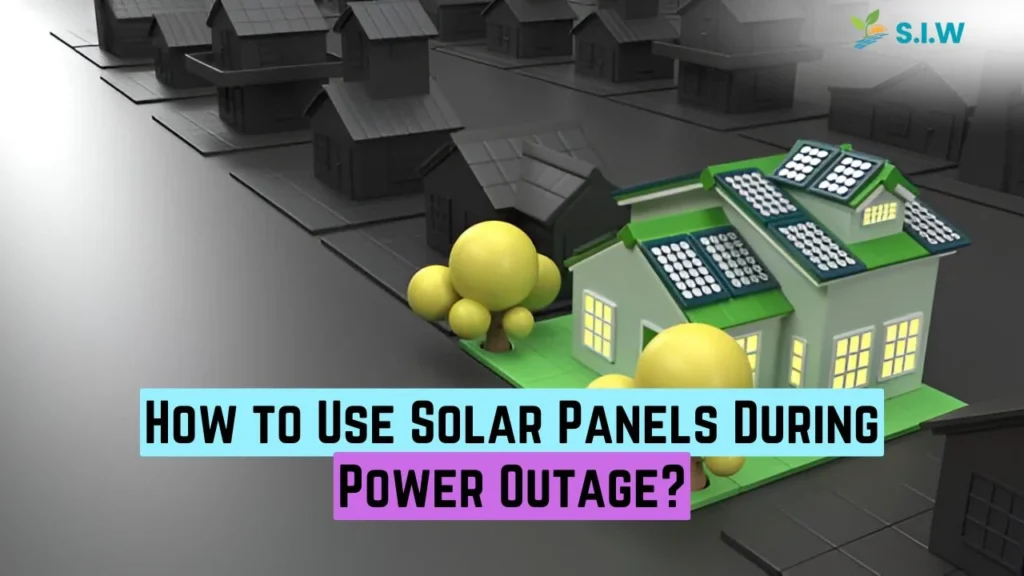Power outages can occur for various reasons, from severe weather to grid failures, leaving households in darkness and disruption. Utilizing solar panels during these outages can be a game changer, providing a reliable source of electricity. This article explores how to maximize the use of solar panels during power outages, ensuring you stay powered when the grid goes down.
1. Understanding Your Solar Power System
Before delving into using solar panels during a power outage, it is crucial to understand the components of your solar power system. Most residential solar systems consist of the following components:
- Solar Panels: These capture sunlight and convert it into electricity.
- Inverter: This device converts the direct current (DC) electricity produced by the solar panels into alternating current (AC) electricity, which powers most household appliances.
- Battery Storage (Optional): Batteries store excess energy generated during sunny days for use when solar production is low, such as during power outages or at night.
- Charge Controller: This component regulates the flow of electricity to and from the battery, preventing overcharging and extending battery life.
Familiarizing yourself with these components will help you understand how to optimize your solar energy usage during an outage.
2. The Importance of Battery Storage
Integrating battery storage into your solar power system is critical for maintaining power during outages. Here’s why:
- Energy Independence: Batteries store excess energy generated by your solar panels, allowing you to use that energy when the grid goes down.
- Seamless Transition: Many modern battery systems can detect outages and switch to battery power instantly, ensuring minimal disruption.
- Energy Management: With battery storage, you can prioritize which appliances to power during an outage, maximizing your energy efficiency.
Investing in a high-quality battery storage system, such as the Tesla Powerwall or LG Chem RESU, can provide you with peace of mind during power outages.
3. Preparing for Power Outages with Solar Panels
Preparation is key to ensuring your solar panel system functions effectively during a power outage. Follow these steps to prepare:
3.1 Assess Your Energy Needs
Begin by evaluating your household’s energy consumption. Identify essential appliances and devices that you cannot do without during an outage. Common essentials include:
- Refrigerators
- Freezers
- Lights
- Medical devices
- Heating or cooling systems
Calculating the total wattage needed for these appliances will help you determine the size of your solar and battery system.
3.2 Optimize Your Solar Setup
If you have not done so already, consider upgrading your solar setup to maximize its efficiency:
- Invest in High-Efficiency Panels: Higher-efficiency panels produce more electricity from the same amount of sunlight, ensuring you have enough power during outages.
- Regular Maintenance: Keep your solar panels clean and free from debris to maintain optimal performance. Schedule routine maintenance checks to ensure all components function properly.
3.3 Install a Transfer Switch
A transfer switch is a crucial safety device that allows you to connect your solar power system to your home’s electrical system. This device ensures that when the grid goes down, your solar system can safely provide power without back-feeding into the grid, which could endanger utility workers. Installing a transfer switch can help you seamlessly switch to solar power during an outage.
4. Using Your Solar Power System During an Outage
Once your solar power system is prepared, you can effectively use it during a power outage. Here’s how:
4.1 Monitor Solar Production
During an outage, keep an eye on your solar production and battery charge levels. Most modern solar systems come equipped with monitoring apps that provide real-time data on energy generation and consumption. This information will help you manage your energy usage effectively, ensuring you do not drain your batteries too quickly.
4.2 Prioritize Essential Loads
To make the most of your solar power during an outage, prioritize essential loads. Consider the following steps:
- Create a Load Shedding Plan: List the appliances you need to power and their respective wattage. Use this list to determine which devices to power first based on your battery capacity.
- Use Energy-Efficient Appliances: During outages, opt for energy-efficient devices such as LED lights or low-energy refrigerators to maximize your available power.
4.3 Manage Power Consumption
Limit unnecessary power consumption during an outage to ensure your battery lasts longer. Implement strategies such as:
- Limit Usage: Turn off non-essential appliances and lights to conserve energy.
- Stagger Usage: If you have multiple essential appliances, use them one at a time rather than all at once. This approach helps distribute the energy load and extends battery life.
5. Maintenance Tips for Solar Power Systems
Regular maintenance is essential to ensure your solar power system operates efficiently, especially during outages. Follow these maintenance tips:
5.1 Routine Inspections
Conduct regular inspections of your solar panels and components. Look for:
- Cracks or damage on solar panels.
- Loose or corroded wiring.
- Signs of battery degradation.
Addressing issues promptly can prevent malfunctions during critical times.
5.2 Clean Your Panels
Keep your solar panels clean and free from dust, dirt, and debris. Regular cleaning can significantly improve efficiency, especially in areas with heavy dust or pollen.
5.3 Test Your System
Periodically test your solar power system to ensure it functions correctly. This includes checking the battery’s charge cycle, inverter operation, and overall system performance. If you notice any issues, consult a qualified technician.
6. Conclusion
Harnessing solar power during a power outage can provide comfort and convenience, allowing you to maintain essential functions in your home. By understanding your solar system, investing in battery storage, and preparing effectively, you can maximize your solar energy usage during these critical moments. With proper planning and maintenance, your solar panels can become a reliable source of energy, ensuring you remain powered even when the grid fails.








